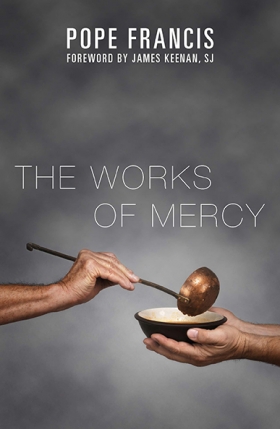
- Mystery and Hermeneutics- Part Two
- James Martin: Essential writings
- The Way of Gratitude - Readings for a Joyful Life
- The Cross in Contexts
- Vesper Time
- Joyce Rupp
- Be Still and Know
- The Works of Mercy
- Spiritual Direction
- Richard Rohr
- And God Created Wholeness
- A New Way to Be Church
- Rejoice and Be Glad
- Blessed Are the Refugees
- Soul Seeing
- Jon Sobrino
- Culture over Christ
- Loving Water across Religion
- Ruth Burrows
- The Way of Forgiveness
- Love Prevails
- A Living Gospel
- Becoming New
- Catholicity and Emerging Personhood
- Vesper Time - The Spiritual Practice of Growing Older
- Ellen Birx: Embracing the Inconceivable
- When Tears Sing
- The Radical Gospel of Bishop Thomas Gumbleton
- Saints Celebrated and Unsung
- The Diary of Jesus Christ
- Catholic Social Teaching
- 99 Names of God
- Eyes of Compassion
- Hunger for Hope
- Belonging
- The Ten Green Commandments of Laudato Sí
- Letters of Tribulation
- O Death, Where Is Thy Sting?
- Mystics in Action
- Walter Rauschenbusch
- Creation's Wisdom
- Unlearning white Supremacy
- The Way of Love
- The Crucible of Racism
- Comprometernos con la diversidad
- Journey of Mother Mother Teresa Nuzzo in the footsteps of Jesus
- Matthew Fox
- The Mystics who came to Dinner
- Telling the San Jose Story
- Awakenings
This collection from Pope Francis will open hearts to the gospel message.
The theme of mercy has been a signature of the pontificate of Pope Francis, a theme rooted in the message of Jesus, who tied our salvation to the treatment of the least of our brothers and sisters: “I was hungry and you fed me… Imprisoned and you visited me....” In reflections drawn from his writings and preaching, Pope Francis treats in turn each of the Corporal and Spiritual Works of Mercy.
Each topic opens a window on a larger theme. For example, under “Welcoming the stranger,” Pope Francis reflects on the plight of refugees and immigrants. His reflections on “Visiting the prisoner” are set in the context of his own pastoral visits to prisons, where he asks the question: “Who is this man standing before you? The man standing before you is a man who has experienced forgiveness. A man who was, and is, saved from his many sins. That is who I am.”


